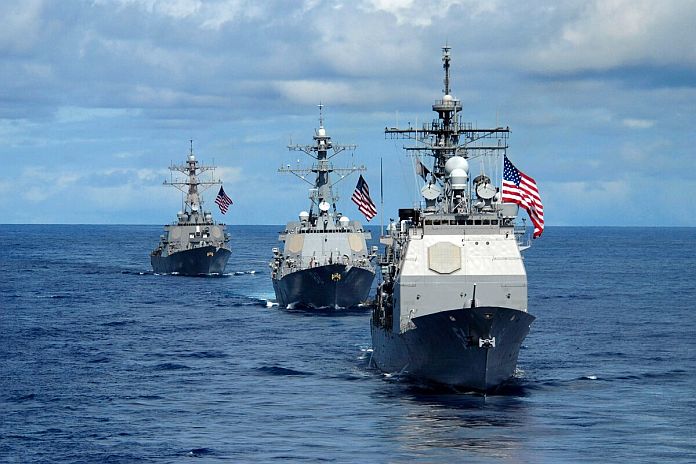Dear Sir
As a former Navy enlisted and officer who served on 13 ships in the 1950s and 1960s, I am very concerned with the preparedness of our ships in light of the COVID19 pandemic.
Captain Crozier, the commanding officer of the USS Theodore Roosevelt (TR) was relieved of command because he publicly criticized the Navy’s response to the COVID19 outbreak on his ship. He seemingly showed poor judgement by publicizing the event to our potential adversaries who could possibly take advantage of the TRs situation, but his concern for his crew and the viability of his ship was valid.
Our ships house anywhere from about 25 to 5,000 naval personnel in cramped quarters depending on the size of the ship, e.g. minecraft versus aircraft carriers. When the TR was laid-up we had one of only 11 attack carriers out of commission. Typically there are five or six carriers in port undergoing repairs, routine maintenance, refurbishment and other requirements. This leaves only five or six carriers available to cover the vast corners of the world with the forward deployment of our sea power. If one or more carriers are laid-up due to serious health conditions, we might not be able to respond on time to threats around the world.
The Pentagon has been working on plans to combat viruses within our armed forces, including vulnerable ships. Part of the solution to combat viruses is to restrict visits to foreign ports in countries that have virus outbreaks. We can’t restrict the movement of personnel in home ports because of the need to refresh on land after deployments at sea. A possibility is to temporarily change home ports of ships for short periods to avoid virus hot spots, and if available and useable, utilize former facilities that were shut down or drawn down.
Civilian shipyards and docking facilities might be able to be used temporarily. Even with virus vaccinations, the Navy might have to conduct routine testing of personnel on board ships, especially when they are ashore and come back aboard ships. Personnel infected with a virus would then be quarantined ashore. If sailors contract a virus while at sea the Navy has to have a separate space in each ship with negative pressure and must have adequate ventilators and personal protective equipment available.
All naval personnel must be required to receive COVID-19 vaccinations and other virus vaccinations when they become available, and they should not be allowed to opt-out. Our national security hinges on the readiness of our military. Unfortunately, I do not see how our Navy can implement personnel distancing. We might be able to reduce the size of crews with more automation and possibly have less contact in working spaces but they would still have to work and eat in crowded settings. However, we still need a minimum complement to run the ship and man the aircraft on carriers.
The virus enemy is upon us, and it will require innovative adjustments within our armed forces, especially the Navy, to provide our country with a viable national security posture.
Communist China accidentally “unleashed a highly contagious and lethal virus on the world” and it could try to use biological warfare against our military in the future. China is currently expanding its military, including its Navy, and It has more naval vessels than the United States, especially frigates and destroyers. By 2025, China will have more aircraft carriers and amphibious assault ships in the Pacific than the United States. We need to evaluate our Naval strategy in the Pacific in light of the expansion and threat of China’s Navy.
Donald Moskowitz
Londonderry NH






